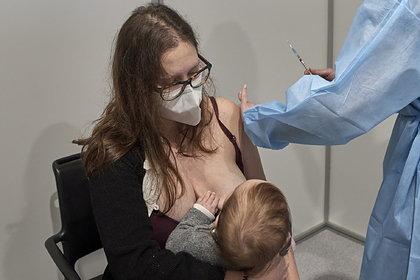Scientists from the USA: antibodies to COVID-19 remain in breast milk for three months 
Researchers from the USA have shown that milk of mothers with acquired immunity to COVID-19 – both as a result of illness and vaccination – active antibodies to infection remain for at least three months. JAMA Pediatrics has published a paper on differences in the effects of disease and vaccination on breast milk.
Researchers at the University of Rochester collected milk samples from 77 mothers – 47 of whom had had coronavirus infection, and 30 received two doses of Moderna or Pfizer. The breast milk of the mothers who had recovered was found to have a high content of IgA antibodies, while the milk of the vaccinated contained strong IgG antibodies. Both types of antibodies neutralized SARS-CoV-2. 60 percent of breast milk samples showed neutralizing activity after the first dose of the vaccine and 85 percent after the second. The study is the first assessment of antibody activity in milk.
Antibody activity persisted for three months after infection or vaccination. At the same time, there was evidence of a decrease in antibody titer in vaccinated mothers. “The trend in antibodies in breast milk is the same as what we see in the serum of vaccinated people. After several months, the level of antibodies decreases, but still remains much higher than before vaccination, “said one of the researchers Kirsi Järvinen-Seppo.
At the same time, the work does not establish whether the contents in the breast antibodies to milk protect the baby from COVID-19, the researchers note. “The study does not imply that children will be protected from disease. Antibodies in breast milk may not be a substitute for vaccination of infants, if approved, ”Järvinen-Seppo emphasized.